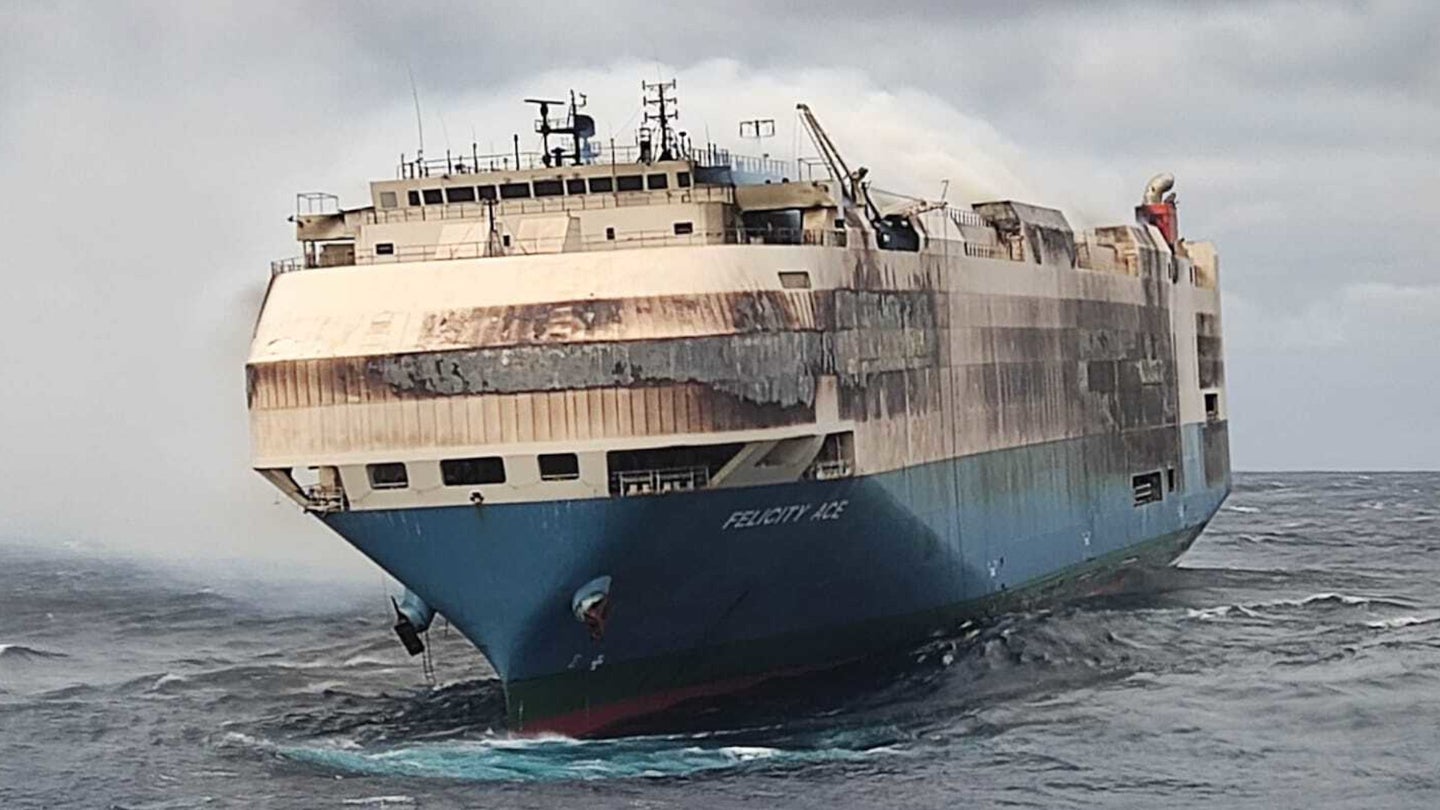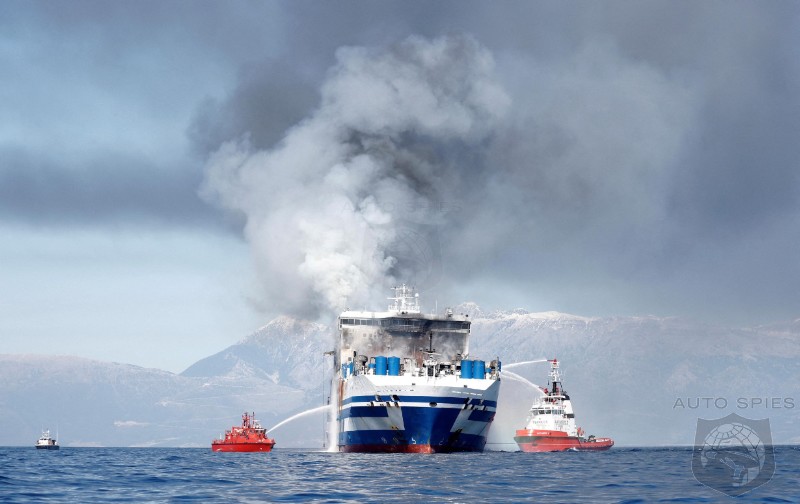The sinking of the Felicity Ace has led to automotive transport companies implementing policies restricting or outright banning EVs out of concerns for the fire risks posed by batteries.
Japan’s Mitsui OSK Lines (MOL)’s Felicity Ace, was lost to a fire that broke out during transit of the Atlantic Ocean. Around 4,000 cars were lost, and the losses of the company were around $500 million according to law firm Vinson & Elkins.
The policy only concerns all-electric vehicles, with hybrids still allowed carriage onboard. “The number of used EVs we transport has been increasing recently,” said the spokesperson, adding that the company has “decided to suspend accepting booking of used battery electric vehicles for the time being.”

MOL confirmed that the policy has “nothing to do with the incident on Felicity Ace.“
“It’s business as usual,” says Chief Operating Officer of Armacup, Hans Corporaal, adding that “Our policy is to not accept accident-damaged EVs, but we will be keeping a close eye on developments relating to used EVs and may need to adjust our policy in the future as and when more information comes available.”

If the new MOL policy is to avoid the risk of runaway combustion during a fire started externally, rather than the risk of the EVs themselves igniting, then banning only used EVs makes very little sense. New EVs present just as much fire risk in this regard. However, it may be that MOL doesn’t wish to jeopardize relationships with major automakers by banning the shipment of their latest products.
The International Maritime Organization has determined that firefighting standards need to change to better handle the challenges posed by EVs on car carriers. With hundreds of thousands of cars parked in close proximity beneath the decks, firefighting techniques used on land, such as dunking a vehicle in water is not enough of a safety measure.


